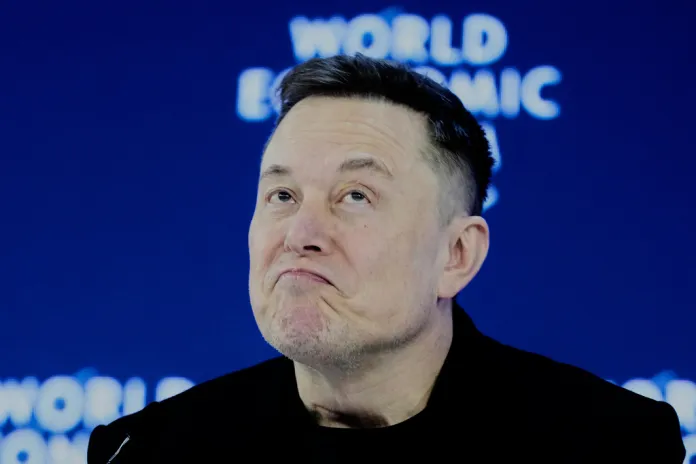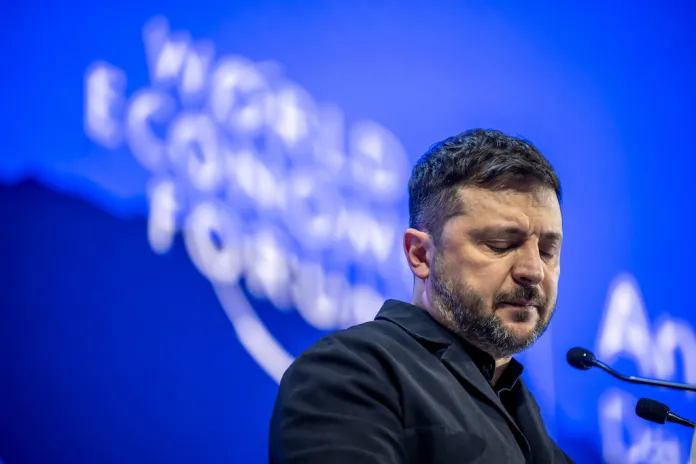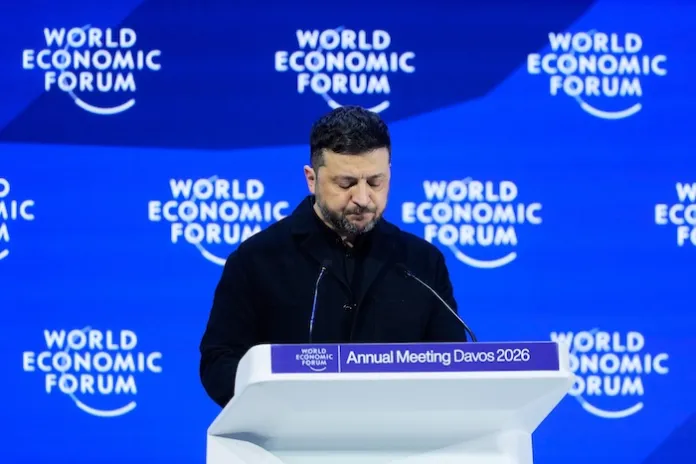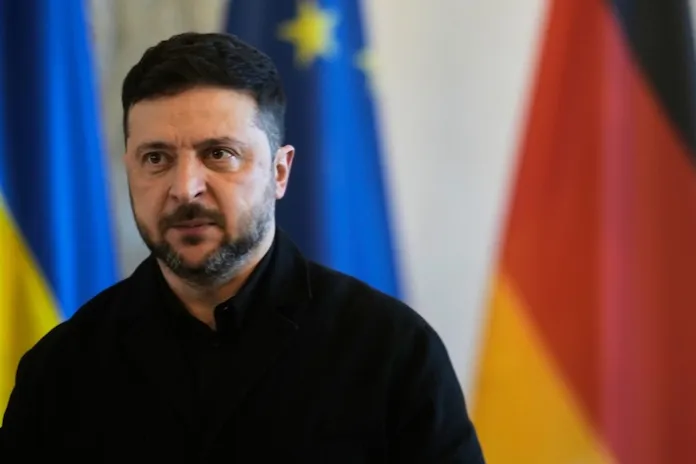EU back to drawing board after Trump-Putin call undermines Zelensky
European leaders are frustrated as President Donald trump’s recent negotiations wiht Russian President Vladimir Putin undermine Ukrainian President Volodymyr Zelensky’s progress in the Ukraine war. Trump retracted his previous optimism about Ukraine reclaiming all its territory and suggested that Ukraine accept the current battle lines, effectively conceding large parts of the Donbas region too Russia.This stance has alarmed European officials, who view such concessions as dangerous and legitimizing aggression. Plans for a U.S.-Russia summit in Budapest have sparked further discontent,especially sence Putin,wanted by the International Criminal Court for war crimes,is expected to attend. Zelensky is hesitant to participate, criticizing the venue and Hungary’s pro-Russian leader Viktor Orban. Meanwhile, Trump’s inconsistent approach, including mixed signals about supplying Ukraine with Tomahawk missiles, continues to complicate diplomatic efforts. In response, European nations plan to approve using frozen Russian assets to fund Ukraine’s defense, signaling a commitment to support Kyiv despite diplomatic setbacks caused by Trump’s unpredictable policies.
European leaders back to drawing board after Trump-Putin call undermines Zelensky’s progress
President Donald Trump’s strategy in his negotiations with Russian President Vladimir Putin is frustrating European allies after he has once again flipped his perspective on the Ukraine war and set up yet another series of meetings to broker peace.
Trump declared Monday that his previous statement speculating that Ukraine could win back all of its territory was noncommittal and that he does not believe it will happen.
“They could still win it, I don’t think they will,” Trump reflected Monday in a press conference with Australian Prime Minister Anthony Albanese. “But they could still win it. I never said they would win it. I said they could win — anything can happen.”
The foreign affairs apparatuses of the White House and the Kremlin are now planning for another series of summits between the United States and Russia in Budapest, Hungary, in the coming weeks. The Trump administration is also encouraging Ukraine to cede all territory held by the Russian military.
“We think that what they should do is just stop at the lines where they are, the battle lines,” the president said. “Leave it the way it is right now. They can negotiate something later on down the line.”
Stopping at the current battle lines would cede approximately 88% of the Donbas region of Ukraine to the Russian forces occupying the area. Putin has claimed that complete control of Donbas is a requirement for peace.
For European nations, the handover of Donbas is an unacceptable concession to a belligerent aggressor — and the upcoming Hungarian summit is insulting to the continent.
“If we just give away the territories, then this gives a message to everybody that you can just use force against your neighbors and get what you want,” said Kaja Kallas, the European Union high representative for foreign affairs and security policy. “I think this is very dangerous. That’s why we have the international law in place, [so] that nobody does that.”
The International Criminal Court issued a warrant for Putin’s arrest in March 2023 under charges of war crimes related to the illicit transfer of Ukrainian children throughout the war. The U.S. is not a member state of the ICC.
Kallas, the EU’s highest diplomat, said of the Budapest meeting that it is “not nice […] to see that really a person put to the arrest warrant by the ICC is coming to a European country.”
Other high-level European diplomats have expressed similar frustrations with the prospect of hosting a war criminal in EU territory.
“Let’s see where the meeting will be held and in which format, but it is of course evident that within the EU area, a war criminal, such as Putin, should not be welcome,” Finnish Foreign Minister Elina Valtonen said.
“The only place for Putin in Europe (is) in The Hague, in front of the tribunal, not in any of our capitals,” Lithuanian Foreign Minister Kestutis Budrys said.
Meanwhile, Zelensky is not expected to participate in the Budapest summit — but not for lack of interest.
“If I am invited to Budapest — if it is an invitation in a format where we meet as three or, as it’s called, shuttle diplomacy, President Trump meets with Putin and President Trump meets with me — then in one format or another, we will agree,” the Ukainian leader explained to the press on Monday.
Zelensky seems particularly frustrated by the venue and hosts of the summit. Hungarian leader Viktor Orban is among the chief defenders of Putin in the EU and recently accused Ukraine of trying to “blackmail” its way into the transnational organization.
“I do not believe that a prime minister who blocks Ukraine everywhere can do anything positive for Ukrainians or even provide a balanced contribution,” he complained, adding that he wants to avoid “another ‘Budapest’ scenario.”
Zelensky was referring to the 1994 Budapest Memorandum, an agreement signed between Belarus, Kazakhstan, Russia, and Ukraine that returned all nuclear weapons to Moscow in exchange for security guarantees backed by Russia.
Trump’s mercurial attitude is once again a hurdle for Zelensky, who arrived at the White House just hours after the Trump-Putin phone call to discuss the possibility of the U.S. furnishing Tomahawk missiles to the Ukrainian military.
Trump had flirted for weeks with the idea of providing the weapons, but his post-meeting readouts on following the call and meeting failed to even mention the possibility of Tomahawks to Kyiv.
The Financial Times asserted in a Sunday report that the Ukrainian president’s meeting turned sour behind closed doors, becoming a “shouting match” with generous amounts of profanity, despite the fact that Zelensky was brought to the White House under Trump’s own invitation.
The Ukrainian leader was also encouraged to meet with defense and energy corporations. He was optimistic and conveyed a sense of mutual understanding with the president.
It seems the Putin phone call was the unknown variable that tanked that progress.
It is a dynamic that has played out time and time again within the Oval Office — Trump moves toward Ukraine on the conflict, begins to consider new routes to beat back Russian aggression, talks to Putin in a bilateral capacity, and then flips back toward Moscow.
European leaders, many becoming disillusioned with Trump’s unpredictable attitude toward Kyiv, will be convening in Brussels for a conference on Thursday in which they are expected to approve a plan to liquidate frozen Russian assets to fund the Ukrainian war effort for years to come.
An estimated $163 billion in funds would be repurposed into a defense slush fund for Ukraine to purchase weapons.
“It’s very simple, either we use the aggressor’s money or we will have to use our own money,” Polish Foreign Minister Radosław Sikorski said. “Don’t ask me which I prefer.”
The loan would be disbursed with the understanding that Russia would use its frozen assets to pay reparations following the end of the war. Some countries that host large amounts of these assets are cautious to the proposal for fear of being stuck with the financial fallout if the plan fails.
Secretary of State Marco Rubio spoke with his Russian counterpart, Foreign Minister Sergey Lavrov, on Monday to discuss “next steps” toward the bilateral summit in Budapest, with the goal of establishing a “durable resolution of the Russia-Ukraine war, in line with President Trump’s vision.”
Lavrov’s camp offered similar platitudes about the “constructive discussion” regarding “possible concrete steps to implement the understandings reached during the Oct. 16 telephone conversation.”
TRUMP SAYS US ‘CAN’T GIVE ALL’ ITS WEAPONS TO UKRAINE AS ZELENSKY SEEKS TOMAHAWK MISSILES
Deputy Foreign Minister Sergei Ryabkov indicated that while the “focus of attention” will be on “the course pursued by the Western group to support Ukraine, which we cannot be satisfied with,” the Russians also hoped to discuss “many other issues on the bilateral agenda.”
“I do not rule out economic matters too, as they also require attention,” Ryabkov said.
" Conservative News Daily does not always share or support the views and opinions expressed here; they are just those of the writer."




